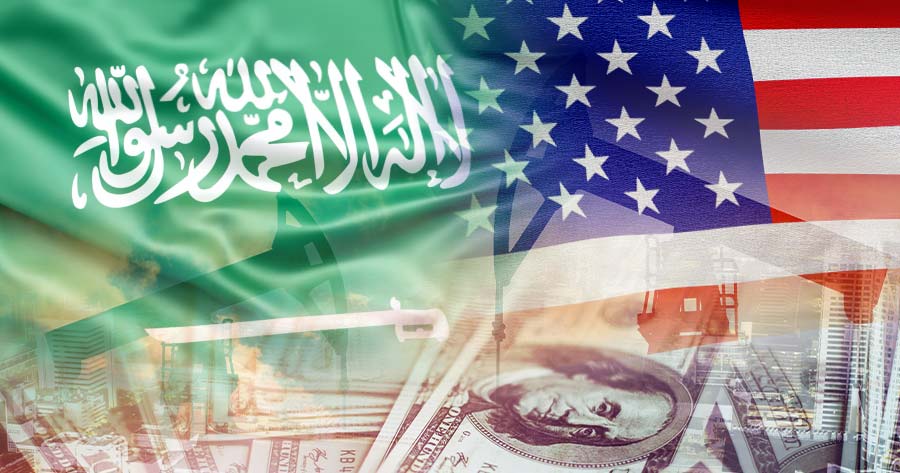Saudi Arabia has made the strategic decision to not renew its long-standing 50-year petrodollar agreement with the United States, which terminated on June 9, as reported by various media outlets. The agreement, first established on June 8, 1974, has historically served as a cornerstone of US economic power on the global stage.
This arrangement, which was crafted to address Saudi Arabia’s military requirements and foster economic collaboration through joint commissions, was envisioned by American officials to incentivize increased oil production by Saudi Arabia and fortify economic bonds with Arab nations.
By opting not to prolong this pact, Saudi Arabia is now free to conduct transactions involving oil and other commodities in currencies beyond the US dollar, including the Chinese RMB, Euros, Yen, and Yuan. There is also contemplation regarding the utilization of digital currencies like Bitcoin for future transactions.
The choice made by Saudi Arabia represents a significant departure from the petrodollar framework initiated in 1972, consequent to the US severing the tie between its currency and gold. This decision is forecasted to expedite the global trend of utilizing currencies other than the US dollar for international trade.
Moreover, Saudi Arabia has become a participant in Project mBridge, a collaborative initiative that explores a digital currency platform designed for shared use among central banks and commercial banks. The main objective of this project is to streamline cross-border payments and currency exchanges utilizing distributed ledger technology.
Launched in 2021, Project mBridge includes the involvement of numerous leading central banks and financial institutions globally. Recently, it has progressed to the Minimum Viable Product (MVP) stage, encouraging private-sector entities to propose innovations and potential applications to enhance the platform further.
This development by Saudi Arabia signifies the start of a significant transformation in the dynamics of the global economy, although its complete ramifications on international trade and financial systems are yet to be fully comprehended.





